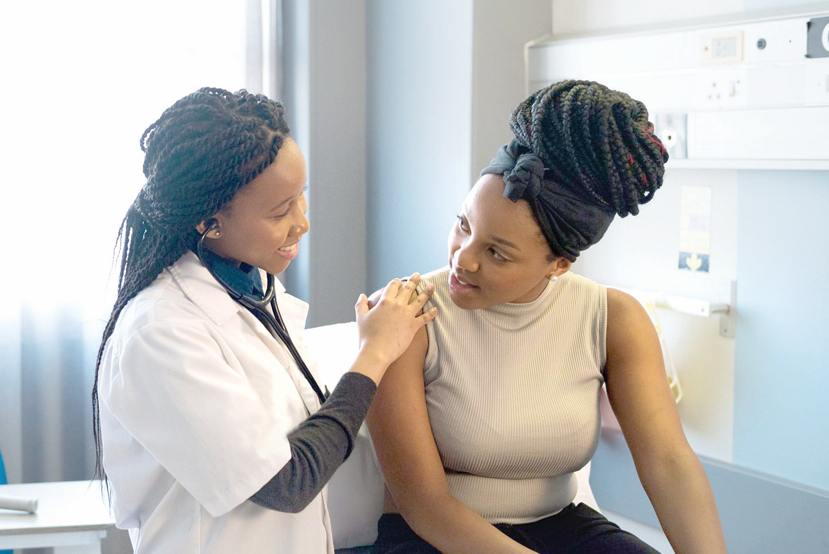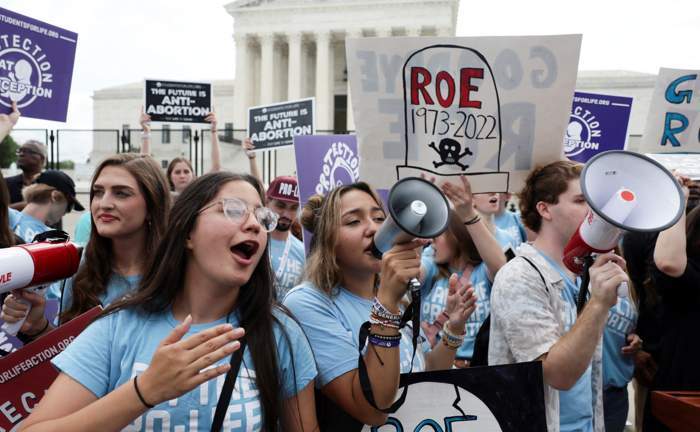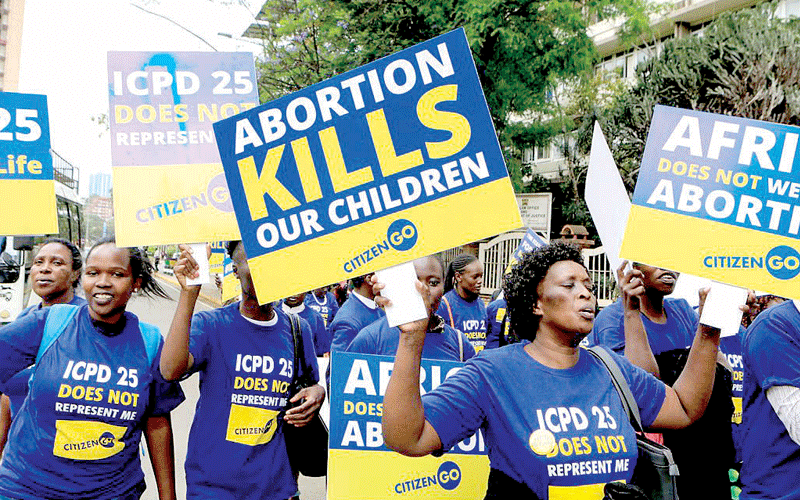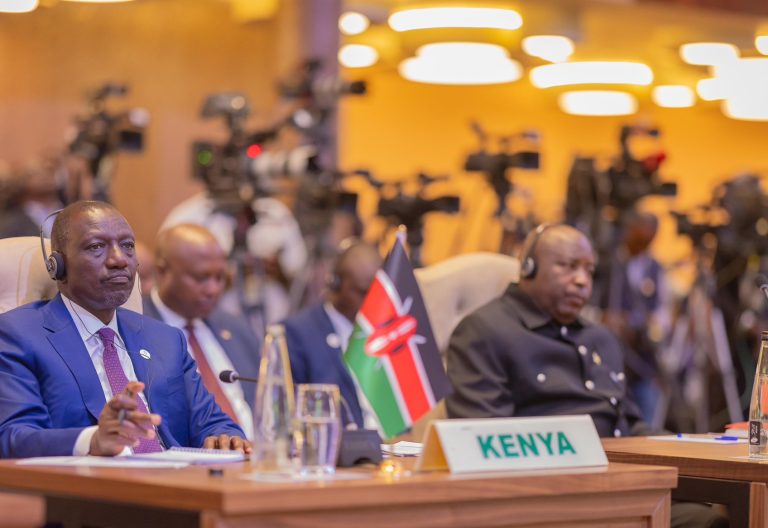Stigma, cost still barriers to safe abortion
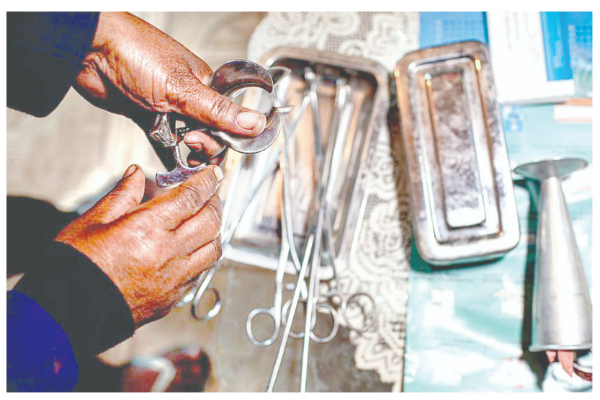
At the heart of one of Kenya’s largest slums, Mathare in Nairobi County, a 40-year-old woman is yet to come to terms with the death of her 16-year-old daughter who passed on after undergoing an abortion in a backstreet health facility in the informal settlement.
The pain of losing her only daughter is still fresh two years after her death.
In 2020, when the world went into a lockdown and most schools shut down, Mary Atieno* lost track of what her daughter was up to during the day while she was away from home.
“I used to work as a dayburg househelp, but with Covid-19 my employer started working from home, so she dismissed me. This left me with no regular income and I had to do other menial jobs to feed my children,” she says.
Mary used to leave her house at the crack of dawn and come back late in the evening and did not spend a lot of time with her children, who were also at home after closure of schools due to the pandemic.
The abortion ordeal
In October that year, Mary says she discovered that her daughter was four months pregnant. “I was heartbroken. I had high hopes for her, because she was my first child to join secondary school and I thought she would work hard and be successful in life,” she says.
Just like her mother, the news were not received well by Mary’s two older brothers who pushed her to name the person responsible for the pregnancy, something she was not ready to do.
Mary says her sons threatened to throw her out of the house if she did not give further details, something that triggered her to seek assistance from the man who was responsible for the pregnancy. “The man had also warned her against revealing his identity and when she informed him of what was happening at home, they resorted to abortion. He took her to a facility on the other side of the slum,” she says.
Mary only came to learn of her daughter’s abortion ordeal when she was called in to attend to her having been dumped at her doorstep and bleeding profusely.
However, she came to discover that a health worker at the backstreet facility gave her some drugs to induce an abortion, but when she started haemorrhaging, she sent her away on a bodaboda (motorbike). “My bleeding daughter was discharged and sent home on motorbike without any sympathy,” she narrates amid tears.
“I arrived home to a girl lying in a pool of blood. She had turned pale. I do not know where I got the energy to take her to hospital because my world crashed when I saw her,” she continues.
Mary’s daughter died soon after arriving at the hospital having lost a lot of blood.
“What broke my heart the most, as we came to find out later, was that she was impregnated by a married man who promised her a good life. That man took advantage of my absence to sleep with my only daughter,” she cries.
The pain is, however, clouded by the stigma of having a daughter who lost her life while undergoing abortion, especially from her neighbours, which has haunted her for the last two years.
To escape the stigma and discrimination, Mary was forced to move away from the area, which she had called home for several years and rebuild her life elsewhere.
Contravene fundamental rights
As the World marked the International Safe Abortion Day recently, under the theme Uncertain times call for diverse, collective action on many fronts, it is evident that unsafe abortion is still a thorn in flesh in Kenya’s quest to curb maternal deaths, as well as contravention of fundamental rights on provision of reproductive health to all.
Community Health Volunteer (CHV) in Kibra informal settlement, Benard Mutachi says unsafe abortions are still a pain in the community, especially to those living in informal settlement.
Mutachi says most of those who seek these illegal services are young girls who got pregnant while still in school and do not want their families to find out. “The girls risk being chased away from home when their families discover they are pregnant so they end up finding cheap ways to terminate the pregnancies,” he says.
The CHV says the common method of abortion is the usage of unsafe equipments and the quack doctors overdosing their clients with herbals and common drugs.”The services are very expensive as they can cost between Sh5,000 to Sh7,000, and we have had cases of failed abortion which then affects the child as they are born with complications,” he says.
Suzanne Majani, the programme manager at Ipas Alliance Africa, an international, non-governmental organisation that seeks to increase access to safe abortions and contraception says majority of the unsafe abortions that happen away from trained medical professions are not recorded, especially due to stigma and fear of prosecution since it is illegal.
Majani says the fact that most of these abortions are conducted away from public facilities it is difficult to have the right data on unsafe abortion.
“Women who opt for unsafe abortions cannot report themselves due to stigma, therefore, we do not have this data. What is recorded by the Ministry of Health are cases of after-abortion care, which do not represent the true picture,” she says. “By the time a woman decides to undergo an abortion, she must have solid grounds to do so. Let us not dehumanise women who seek abortion,” she notes.
Other barriers to safe abortion
Majani says aside from stigma that prevents women from seeking safe abortion services, ill-equipped hospitals, untrained medical workers, cost and lack of adequate information are among the major barriers behind continuation of unsafe abortions in Kenya.
She says majority of Kenya’s trained medical professionals who are the persons allowed by the constitution to give opinions on whether a woman should undergo abortion are not well trained on handling these women.
He says most professionals stigmatise and judge women who seek these reproductive services. “Medical parameters should not be the only ground used on abortion. We need to redefine the parameters and take into consideration the mental and socio-economic well-being of both the woman and the foetus. Abortion is part of reproductive health, which every woman is entitled to,” she adds.
Majani further says lack of information, especially in the rural areas pushes women to use unorthodox means of procuring an abortion, such as drinking excessive salt, stepping on the stomach, using sticks, drinking a mixture of malt or sugar diluted in water with crushed glass (usually glass bottles), among others.
Martin Onyango, the associate director, legal strategies at the Centre for Reproductive Rights says Kenya has not made any major steps in adopting and implementing World Health Organisation (WHO) recommendations on abortion, which will automatically curb procuring of unsafe abortion.
Onyango says WHO recommends decriminalisation of abortion, which will give women an opportunity to seek safe abortion services without the fear of prosecution. “As it stands, women who seek abortion services from untrained medical professionals or facilities without right equipment can be charged with illegal abortion,” he says.
Onyango says the efforts to push for re-evaluation of the law on abortion have been hampered by religious beliefs, which are being spearheaded by the right-wing groups and religious leaders.
Onyango says the most affected persons of this standoff are women from low class levels, especially those living in informal settlements and rural areas.
As for now, the reproductive health policy guidelines only allow public hospitals to offer after-abortion-care incase of any effects.
This then pushes women to either seek these services in private hospitals or for those who cannot afford it, have to go to quack doctors and then fall back to public hospitals if the process goes wrong.
